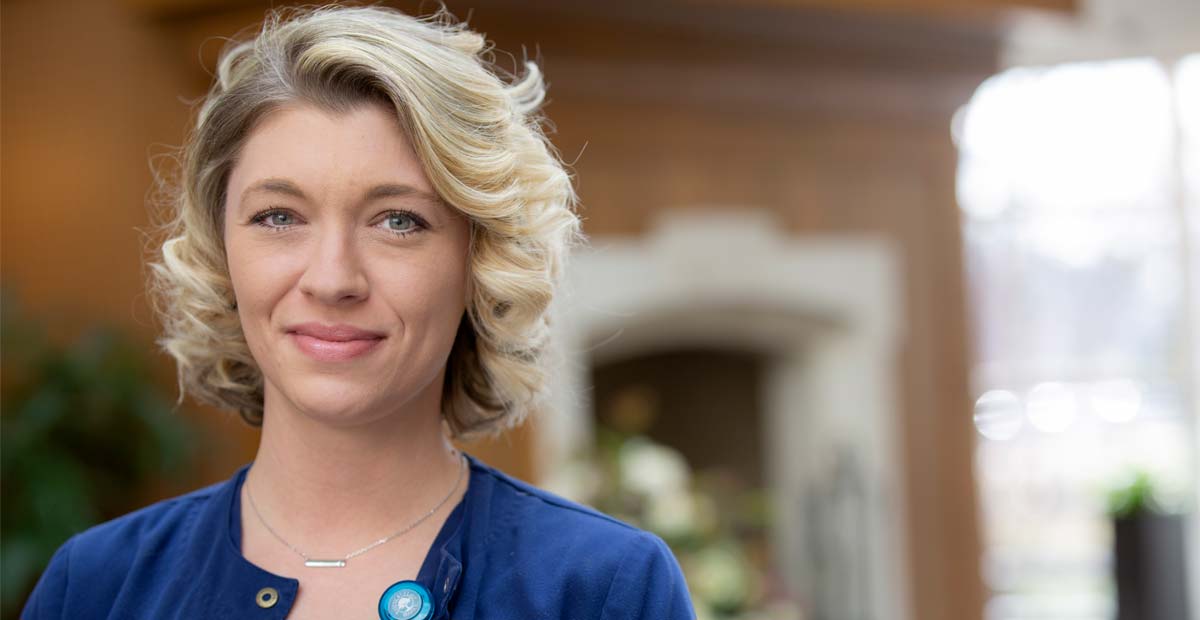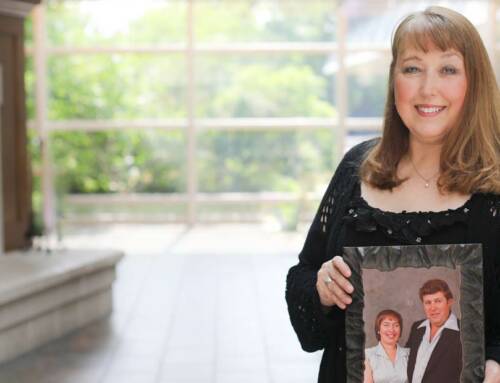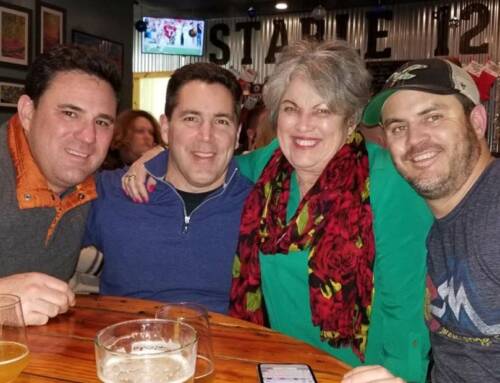When someone is diagnosed with a terminal illness, their loved ones often take on a role they never thought they would: caregiver. Caregivers are responsible for the well-being of their loved one while still caring for themselves and, sometimes, other family members. Samantha Sheaffer has aided patients and their caregivers for five years as a certified nursing assistant for hospice. “Being a caregiver is the most difficult job there is,” Samantha says, “and it’s 24-hours-a-day, seven-days-a-week.”
While her friends and family wonder how Samantha can work with terminally ill patients and their families each day without becoming emotionally drained, she wouldn’t have it any other way. “I love to teach families in these hard times what comes as second nature to me,” she says.
Samantha works frequently with Masonic Village Hospice patients who are residing in their homes. She drives to the homes of five to seven patients per day and is able to spend upwards of an hour with each one.
“I enjoy building personal relationships with my patients, which is part of the reason why I chose to work in hospice,” Samantha says. “I help them get out of bed, get them dressed, feed them meals, help with personal care and even serve as a companion.” She also educates family members on how to complete these tasks for their loved ones.
“They know they can always call us for help or advice,” Samantha says, “but sometimes people want to show their love by doing these things themselves.”
Samantha knows this from personal experience, as she lost her mother several years ago. Shortly after, her father was diagnosed with cancer. He was diagnosed seven months before passing away, which gave time for him to receive end-of-life care. “That experience changed the way I viewed my job,” Samantha recalls. “I’ve watched the dying process hundreds of times before, but you gain a broader perspective when it happens to your loved ones.”
Samantha’s experience with death has enabled her to practice strong empathy with her hospice families.
“Everything can be chaotic at the end of life,” she says. “Death can be a peaceful and spiritual experience, and it’s our job to make it that way.”
Hospice nurses, physicians, chaplains and social workers often rely on certified nursing assistants, like Samantha, to be the eyes and ears of the service.
“We know a patient’s condition really well because we see them most often,” Samantha says. “I see some patients five days a week.”
Samantha remembers one patient who she built a relationship with after initially thinking her care would be a challenge, due to her condition.
“Her disease had caused her to lose the ability to communicate,” Samantha said. “She wrote down everything she needed on a piece of paper for me to read, but after a while, she could just look at me and I’d know what she was thinking.”
The hospice team not only considers a person’s illness, but their personal needs as well. “We don’t want our patients to have any anxiety or regrets during this time.”
Last year, Samantha was working with a bed-ridden patient who lived at home with his wife. During one of her visits before Christmas, Samantha realized how distraught the man was, as it was the first Christmas he was unable to go shopping for a gift for his wife, something he’d done every year of their marriage.
“As soon as I realized this, I talked to one of our social workers, and we made it happen,” Samantha said. “We picked up a gift, wrapped it and put it under the tree so his wife would have something to open on Christmas morning. She was pretty surprised.”
On Valentine’s Day, staff sent the man’s wife a dozen red roses signed with his name.
When the time comes to say goodbye, Samantha is there with open arms and simple acts of kindness. “If a patient is dying at home with their family around them, I have brought coffee and donuts to the house, or other small things. We are encouraged by our leadership to do things like that and think outside the box.”
Even after patient care isn’t needed, Samantha is still involved in helping families grieve.
“I let them know that in many cases, you’re grieving even before the loss of your loved one happens,” she says. “I let families know that I understand how they feel and that it’s okay to be tearful or upset.”
Thankfully, Masonic Village Hospice also offers grief support for staff in direct patient care. “Our hospice chaplains hold sessions with us where we read the names of patients we have lost as a way of letting go of those emotions,” Samantha said. “It’s not just a job for any of us.”




